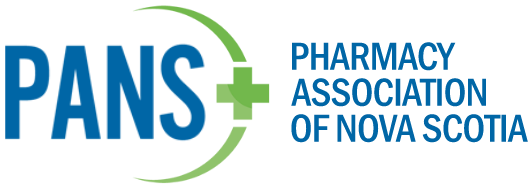 This service is free with a valid Nova Scotia Health Card at your local Community Pharmacy Primary Care Clinic. Click Here to book an appointment.
This service is free with a valid Nova Scotia Health Card at your local Community Pharmacy Primary Care Clinic. Click Here to book an appointment.

Pharmacists in Nova Scotia can assess and prescribe for the following common conditions:
GASTROINTESTINAL
- Acid Reflux
- Diarrhea (non-infectious)
- Heart Burn
- Hemorrhoids
- Nausea
HEAD/ NOSE/ THROAT
- Allergies
- Cough related to COVID-19
- Dry eyes
- Headache (mild)
- Oral Thrush
- Oral Ulcers
- Pink Eye
INFECTIOUS DISEASE
- Lyme Disease Prevention
- Treatment of Shingles (click for more information)
- Uncomplicated Urinary Tract Infections (UTIs)/Bladder Infections (click for more information)
REPRODUCTIVE HEALTH
- Birth Control (click for more information)
- Menstrual Cramps
- Emergency Birth Control
- Vaginal Yeast Infection
DERMATOLOGICAL
- Acne (mild)
- Cold Sore
- Eczema (mild to moderate)
- Hives (mild)
- Impetigo
- Rash
OTHER
- Joint Pain (minor)
- Muscle Pain (minor)
- Sleep Disorders (minor)
- Smoking Cessation
- Threadworms and Pinworms
OTHER ITEMS NOT COVERED BY NS HEALTH CARD: Vaccines that are not currently publicly funded (ex. Shingles vaccine, hepatitis A and B) | Malaria prevention medication
FAQ
- WHAT IS A COMMON CONDITION?
- A condition that can be managed with minimal treatment and/or self-care strategies
- Also referred to as minor ailment
- Usually a short-term condition
- Does not require any blood work or lab tests
- Can be managed by your pharmacist at the pharmacy
- Not intended to replace regular visits with your primary care provider
- A minor ailment can be treated with self-care treatments, over-the-counter medication treatments, or prescription medications
- Do all pharmacies in Nova Scotia offer assessment and prescribing services for common conditions?
- Most, but not all, pharmacies in Nova Scotia provide minor ailment assessment and prescribing services.
- Will I need to pay to have a common condition assessed?
- Fees vary by pharmacy. Common Condition Assessment/Prescribing is provided at CPPCC locations at no charge to the patient with a valid Nova Scotia Health Card.
